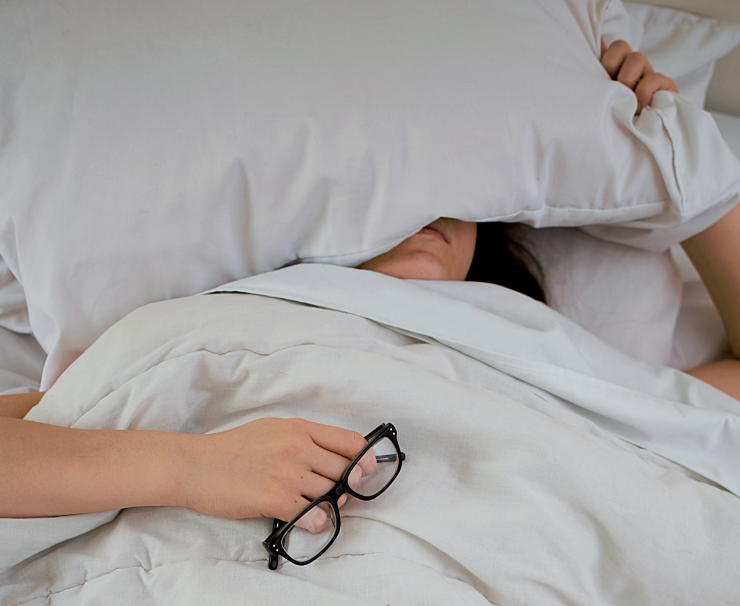Video
Selecting Specific DORAs for Insomnia
Author(s):
Ashgan A. Elshinawy, DO, shares her approach to treatment selection of DORAs and switching therapies for the management of sleep disorders.
C. Michael Gibson, MD: Ashgan, how do you decide which DORA to give to which patient? Are there health conditions and age things that come into consideration?
Ashgan A. Elshinawy, DO: Yes. As we stressed before, the half-life becomes a big factor in helping me to decide that. The fact that daridorexant has a much shorter half-life than its peers in that category makes it a lot more attractive, especially in people who are elderly, people who have comorbidities, cardiovascular, lung diseases, or maybe liver dysfunction. I wouldn't want any drug to be in them longer than needed. I would like for it to clear their system by the time they wake up in the morning, and especially if someone has to get up at a certain time and go to work, as opposed to a retired person. It becomes much more important for me to have the shortest half-life possible, and that's why daridorexant would be in that kind of population as the favorable choice.
C. Michael Gibson, MD: The other thing that we've been talking about is that anxiety about falling asleep is a big part of this. As you're lying there staring at the ceiling and not sleeping, you are closing in on 5 hours of sleep instead of 8 hours. Having a shorter half-life drug might be better in terms of not being cloudy the next day.
Ashgan A. Elshinawy, DO: That's one of the reasons why some people give up on therapy. If they sleep, they get knocked out, and then, they say that they just feel drugged in the morning and very slow. They feel like they have this brain fog. Some people compare it to when they had COVID-19, and there are so many people who have had COVID. They say, you know that brain fog that I had when I had COVID? That's how I feel, but I feel it every morning. There's no way they're going to stick with that therapy if you are replacing one problem with another.
C. Michael Gibson, MD: When you decide to switch, do you ever switch between therapies?
Ashgan A. Elshinawy, DO: Yes, absolutely. If there are any side effects that are not tolerable, or short lived such as the next day hangover feeling, or the daytime sleepiness. If there are any intolerable side effects that are affecting their quality of life, I certainly switch to either a different medicine in that category, or a completely different category medication. Sometimes if they're at a high dose, I'll just reduce the dose, especially if it's effective at the higher dose. Let's see what we can get away with in terms of a lower dose because it's clearly a good drug for them, but it's just maybe too high of a dose especially if there's other medications that may be interacting with it and raising the concentration in their serum with that drug. There are plenty of options and alternatives to switch to, and physicians should not be scared to switch to another medication. It takes a little bit of thought and effort, but long term, the commitment will be there by the patient.
Nathaniel F. Watson, MD: With the DORAs, we have to set expectations with our patients because it reduces wakefulness. It's not a sedative drug and in the studies that we see, there does appear to be an increase in effect over time, early on, to stick with it. The best night of sleep might not be the very first night that they take it. Unfortunately, sometimes in caring for insomnia [it’s] that the expectation level is very high for the patient coming in. If it's not met on the first night that they take a medication, sometimes they'll give up on it prematurely, and then, you won't ever know if this particular medication would have been a good fit for that individual. Expectation setting is a crucial element of onboarding somebody onto one of these DORA medications.
Ashgan A. Elshinawy, DO: That's an excellent point, and something that I've actually learned and discovered myself as I'm treating with DORAs, more because they're expecting something to knock them out. They use those words, and if I am prescribing a DORA, I actually do share the data. I dilute it a little bit so that it's understandable, but I basically say that the data shows that at 2 weeks you'll feel a little better than day 1, and at 4 weeks, you're going to feel better than at 2 weeks. That means to give me at least 4 weeks to get this a little improved, don't be impatient with it, and remember that this insomnia did not happen overnight; it happened over many years. Sometimes it took you decades to see a doctor about this, so give me at least a month to work on this, and let's work together. That was a great point that you brought up.
Transcript edited for clarity





